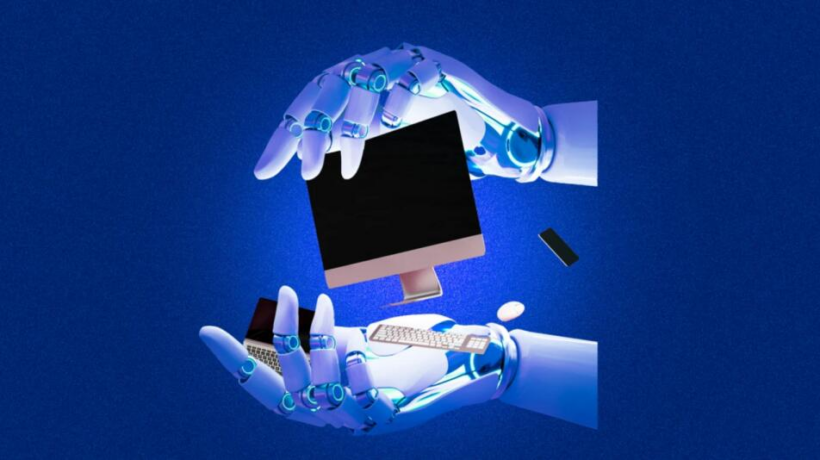While AI and other forms of automation have been changing work over the past few decades, the past 11 months have seen the pace of change accelerated at a dizzying speed.
According to the site “There’s an AI for that,” there are currently over 8,800 AI tools that can perform over 2,000 tasks that are part of nearly 5,000 jobs—everything from street sweepers (who the site claims can have 90% of their tasks automated) to CEOs (who can have 91% of their tasks completed by AI).
So what is a street sweeper, CEO, or any other human with a job to do in the face of the fast-paced AI revolution? In March, I talked to Dr. Tomas Chamorro-Premuzic about what uniquely human skills can’t be replaced by machines and how we can double down on those skills. He said, “ “[Our] differentiating angle will be to develop and cultivate our emotional intelligence, our social skills, and our ability to feel what others feel and connect with them.”
Still, if such a large percentage of 5,000 jobs and counting can be automated, we’re going to have to learn how to use technology that, if it hasn’t already, will become part of all of our daily working lives. What’s more, as some jobs will eventually get eliminated altogether, many of us will have to learn new AI management roles.
On the latest episode of The New Way We Work, I asked Aneesh Raman, vice president and Head of Opportunity Project at LinkedIn, how AI is impacting job postings on the platform.
AI’S RAPID GROWTH AS A JOB SKILL
He noted that the demand for AI engineers on LinkedIn has grown by over 100% in just the past three months. But, he notes that while that’s a huge increase and that AI roles are growing quickly, these kinds of AI-centric jobs still account for less than 1% of all jobs on LinkedIn.
AI skills within existing roles however are seeing a huge increase in job listings and in member’s profiles. “We’ve seen a 75% increase each month since the start of the year in members, adding terms like AI, ChatGPT, and prompt engineering to their profiles and a 65% uptick in time spent on learning courses around AI.”
But he agrees with Chamorro-Premuzic that the soft skills that can’t be replaced by AI will continue to be an important differentiator for job seekers, citing the fact that 70% of U. S. executives surveyed by LinkedIn agree that soft skills are more important than AI skills right now.
Still, Raman believes AI will “usher in a new world of work,” one that he says has the potential to be much more equitable.
SKILLS FIRST HIRING
What threatens most of us about automation in our jobs can also be a strength in job hunting. If any job from street sweeper to CEO can be broken down in a collection of tasks that AI is likely to do, we all need to define what skills it leaves us with. Raman says both job seekers and hiring managers are starting to focus on those new digital and AI-related skills as well as the new hard skills and people skills.
One of the main ways Raman says that AI can help usher in a more equitable workforce is to change the old ways of talent acquisition. Rather than filtering for degrees, or even related roles or company names, he’s seeing both hiring managers and job seekers changing the way they view credentialing.
When companies open their search criteria up to skills the candidate pool becomes much bigger. Similarly when candidates are able to craft their résumés, cover letters, and profiles to highlight transferable skills from across seemingly unrelated roles and skills learned outside of traditional degrees, they can make it past filters that previously blocked them out.
“For all of human history, [knowing what the hiring manager wants to hear] has really blocked out a lot of people from accessing opportunities simply because they didn’t know what the right thing to say was, not because they lacked the [job] skills,” Raman says.
Listen to the full episode for more on how companies are thinking about responsible AI, why Raman thinks the study of philosophy will a crucial job skill, how AI will break down barriers for entrepreneurs, and more.







